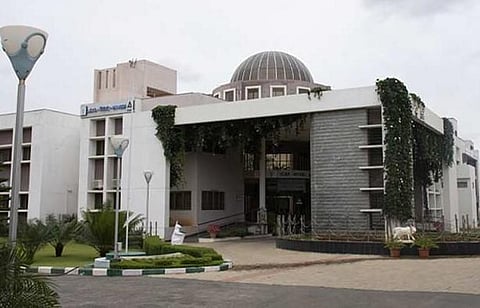

BENGALURU: There is an increased focus on zoonotic diseases in the last one decade with widespread destruction of forests -- a major contributor to global warming -- and increased incidences of human-animal proximity and conflicts. The Covid-19 pandemic caused by SARS-CoV-2, which has been classified as a zoonotic disease, has brought to fore the deadly impact of emerging infectious diseases of probable animal origin.
Besides zoonosis, animals, including livestock diseases, pose a grave threat to the economy. “In the last three years, lumpy skin disease (LSD) has claimed over two lakh cattle heads in 30 lakh reported cases in the country. Similarly, African swine fever (ASF), entered India from Assam and Arunachal Pradesh in 2020. It has now spread up to Kerala and Karnataka. ASF is a highly contagious viral disease of domestic and wild pigs, whose mortality rate can reach 100 per cent,” said Dr BR Gulati, director, ICAR-National Institute of Veterinary Epidemiology and Disease Informatics (NIVEDI).
NIVEDI has emerged as a leading institution in the field of veterinary epidemiology, not just within the country, but also on the global stage. “We have an animal disease database of the country and provide valuable policy inputs related to animal health to state and central governments,” he added.
The institute is actively involved in ongoing flagship national animal disease control programmes of major livestock diseases such as foot and mouth diseases (FMD), brucellosis, Peste des Petits Ruminants (PPR) in sheep and goats, classical swine fever or hog cholera (CSF) as well as LSD in bovines and ASF in pigs. Brucellosis is a bacterial disease, which mainly infect cattle, swine, goats, sheep and dogs. Humans generally acquire the disease through direct contact with infected animals, by eating or drinking contaminated animal products or by inhaling airborne agents.
NIVEDI is celebrating its foundation day on July 1 marking a significant milestone in its journey towards excellence in veterinary epidemiology and disease informatics. “By harnessing the power of data, technology, and interdisciplinary collaboration, the institute aims to continue making significant contributions to the field, promoting animal health, and improving the livelihoods of farmers and livestock owners,” said Gulati. Member, Agricultural Scientists Recruitment Board, New Delhi, SP Kimoti, will be the chief guest on the occasion.